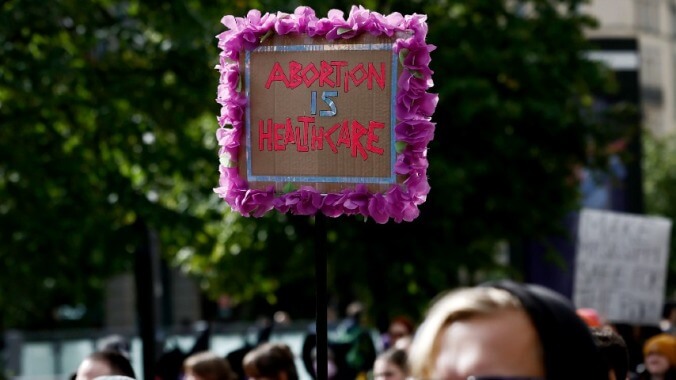More and More Pregnant People Are Facing Pregnancy Criminalization
Since Roe v. Wade was overturned, 412 people have faced criminal charges for any offense associated with “pregnancy, pregnancy loss, or birth."
Photo: Getty Images AbortionPolitics
When a 24-year-old woman in Tifton, Georgia, was found outside of her apartment unconscious and bleeding in March, she was arrested by police. She’d had a miscarriage, and after cops received an anonymous tip, they recovered some fetal remains in a dumpster nearby. And so the Tift County Sheriff’s Office jailed her for “concealing the death of another person” and “abandonment of a dead body.”
Amid public pressure, the charges were dropped in April. But her harrowing story wasn’t an anomaly—she’s among hundreds of pregnant people who’ve been charged with crimes since 2022.
Since the Dobbs decision overturned Roe v. Wade, 412 people have faced criminal charges for any offense associated with “pregnancy, pregnancy loss, or birth,” according to the latest update from Pregnancy Justice. In 16 of those cases, the pregnant person was charged with homicide.
“When we redefine ‘child’ to include ‘embryo’ and ‘fetus,’ pregnant people get charged with crimes,” Pregnancy Justice Senior Vice President Dana Sussman explained to Jezebel. “What it does is it puts every pregnancy under some level of criminal suspicion if they are not doing what their doctor, what society tells them that they need to do to be a quote ‘good mom’ or ‘good pregnant person.’”
-

-

-

-

-

-

-

-

-

-

-

-

-

-

-

-

-

-

-

-

-

-

-

-

-

-

-

-

-

-

-

-

-

-

-

-

-

-

-

-








































